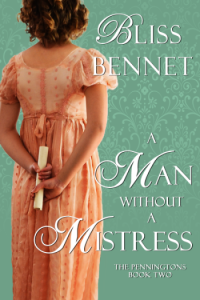 Miss Bates loves the opposites-attract romance trope, especially when the hero’s and heroine’s surface characteristics mask their opposites. Opposites-attract “squared” describes Sabrina Jeffries’s second Sinful Suitors 1830-set romance, The Study Of Seduction. “Grumpy Edwin” Barlow, Earl of Blakeborough, pits himself against “frivolous beauty” Lady Clarissa Lindsey, his sister’s best friend. In time, Edwin reveals a wicked wit and Clarissa, a gravitas borne of pain.
Miss Bates loves the opposites-attract romance trope, especially when the hero’s and heroine’s surface characteristics mask their opposites. Opposites-attract “squared” describes Sabrina Jeffries’s second Sinful Suitors 1830-set romance, The Study Of Seduction. “Grumpy Edwin” Barlow, Earl of Blakeborough, pits himself against “frivolous beauty” Lady Clarissa Lindsey, his sister’s best friend. In time, Edwin reveals a wicked wit and Clarissa, a gravitas borne of pain.
Edwin is a member of the St. George’s Club, a gentleman’s circle dedicated to protecting their families’ and friends’ women from scoundrels, socalled “sinful suitors.” Edwin’s friend, Warren Corry, Marquess of Knightford, Clarissa’s cousin, has watched out for her and her widowed mother, Lady Margrave. Knightford is called away to the continent to help Clarissa’s brother, Niall. Edwin and Clarissa, long-acquainted, have sparred and jabbed at each other since Clarissa and Yvette, Edwin’s sister, tittered, gossiped, and shopped together. Edwin’s steadfast, stodgy, introverted propriety rubs Clarissa’s social butterfly effervescence and flirtatious energy to poke and prod at his restrained demeanor. Nevertheless, Edwin insists he take Knightford’s place, protecting Clarissa from a stalker. Count Geraud Durand, France’s chargé d’affaires, follows, goads, importunes, and forces his unwanted, oily attentions on Clarissa and infuriates Edwin.
(more…)
 Now that Miss Bates has read Bliss Bennet’s second romance novel, she can place her in histrom-world with Rose Lerner, Cecilia Grant, and recent discovery Blythe Gifford. They all have the rare, and becoming rarer, ability to create main characters who reflect their times and are in turn uniquely, likably themselves. Their main characters’ constraints are not solely those of personality or circumstance, but political, economic, social, and/or gender strictures. Bennet creates creatures of their time and yet uniquely themselves, approachable and sympathetic to the reader. In her second Pennington romance, Bennet tells the story of Sibilla Pennington, sister to
Now that Miss Bates has read Bliss Bennet’s second romance novel, she can place her in histrom-world with Rose Lerner, Cecilia Grant, and recent discovery Blythe Gifford. They all have the rare, and becoming rarer, ability to create main characters who reflect their times and are in turn uniquely, likably themselves. Their main characters’ constraints are not solely those of personality or circumstance, but political, economic, social, and/or gender strictures. Bennet creates creatures of their time and yet uniquely themselves, approachable and sympathetic to the reader. In her second Pennington romance, Bennet tells the story of Sibilla Pennington, sister to  Elizabeth Hoyt: Miss Bates just can’t quit you. Thus Miss B. found herself reading Hoyt’s, yes, ninth Georgian-set, Maiden-Lane novel, Sweetest Scoundrel. And what a scoundrel Asa Makepeace was, paired with a plain-Jane heroine, his “harpy,” as he called her, Eve Dinwoody, sister to Valentine Napier, Duke of Montgomery (the
Elizabeth Hoyt: Miss Bates just can’t quit you. Thus Miss B. found herself reading Hoyt’s, yes, ninth Georgian-set, Maiden-Lane novel, Sweetest Scoundrel. And what a scoundrel Asa Makepeace was, paired with a plain-Jane heroine, his “harpy,” as he called her, Eve Dinwoody, sister to Valentine Napier, Duke of Montgomery (the  Miss Bates approaches a new-to-her author, especially a self-published one, with trepidation. Witness? Her DNF posts. But Bliss Bennet is the writer of the Romance Novels For Feminists blog, which Miss B. reads and enjoys. And she was curious: what kind of a romance would a long-familiar blogger write? Given the blog content, will it be “feminist”? Though Miss Bates calls herself a feminist, she doesn’t read romance, or rather she doesn’t deliberately read romance because it carries a particular stance. She went into reading Bennet’s romance with these questions and departed, as she tapped the final page on her Kobo, not really caring how they were, or not, answered. Because she was completely swept up in the story.
Miss Bates approaches a new-to-her author, especially a self-published one, with trepidation. Witness? Her DNF posts. But Bliss Bennet is the writer of the Romance Novels For Feminists blog, which Miss B. reads and enjoys. And she was curious: what kind of a romance would a long-familiar blogger write? Given the blog content, will it be “feminist”? Though Miss Bates calls herself a feminist, she doesn’t read romance, or rather she doesn’t deliberately read romance because it carries a particular stance. She went into reading Bennet’s romance with these questions and departed, as she tapped the final page on her Kobo, not really caring how they were, or not, answered. Because she was completely swept up in the story. As Miss Bates discussed
As Miss Bates discussed 



